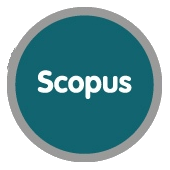Colaboración guiada y ordenadores: alguno de sus efectos sobre logros en el aprendizaje
Resumen
Palabras clave
Texto completo:
PDFReferencias
Brown, A.L. (1978) Knowing when, where, and how to remember: A problem of metacognition, en R. Glaser (Ed.) Advances in instructional psychology, vol. 1, pp. 77-166. Hillsdale, NJ: L. Erlbaum Ass.
Brown, A.L. & Palincsar, A. (1989). Guided, cooperative learning and individual knowledge acquisition. En L. Resnick (Ed.) Knowledge, learning and instruction: Essays in honor of Robert Glaser, pp. 393-451. Hillsdale, NJ: Lawrence Erlbaum Associates.
Conklin, J. (1987) Hypertext: An introduction and survey, en IEEE Computer, 20(9), pp.17-41.
DGCyE (1999a) Organización de Contenidos. La Plata: Gobierno de la Pcia. de Buenos Aires, Dirección General de Cultura y Educación.
DGCyE (1999b) Dise-o Curricular: Estructura general, Fundamentación y Propósito de las Áreas, Expectativas de Logros. La Plata: Gobierno de la Pcia. de Buenos Aires, Dirección General de Cultura y Educación.
Forman, E.A. & Cazden, C.B. (1985) Exploring Vygotskian perspectives in education: the cognitive value of peer interaction, en Wertsch, J.V.(Ed.) Culture, communication, and cognition: Vygotskian perspectives, pp. 323-347. Cambridge: Cambridge University Press.
Graham, S. & Weiner, B. (1996) Theories and principles of motivation, en D.C. Berliner & R.C. Calfee (Eds.) Handbook of Educational Psychology, pp. 63-84. New York: Simon & Schuster Macmillan.
Greenfield, P.M. (1984) A Theory of the Teacher in the Learning Activities of Everyday Life, en B. Rogoff & J. Lave (Eds.) Everyday Cognition: Development in Social Context, pp.117-138. Cambridge, MA: Harvard University Press.
Hacker, D.J. (1998) Metacognition: Definitions and Empirical Foundations en D.J. Hacker, J. Dunlosky & A.C. Graesser (Eds.) Metacognition in Educational Theory and Practice. Mahwah, NJ: L. Erlbaum Ass.
Huertas, J.A. (1997). Motivación: Querer aprender. Buenos Aires: Aique Grupo Editor.
Johnson, D.W. & Johnson, R.T. (1994) Learning together and alone: Cooperative, competitive, and individualistic learning. Boston, MA: Allyn and Bacon.
Kagan, S. (1992) Cooperative Learning. San Juan Capistrano, CA: Resources for Teachers.
King, A. (1990) Enhancing peer interaction and learning in the classroom through reciprocal questioning, en American Educational Research Journal, 27, pp. 664-687.
Lajoie, S.P. (1993) Computer Environments as Cognitive Tools for Enhancing Learning, en Lajoie, S.P. & Derry, S.J. (Eds.) Computers as Cognitive Tools, pp. 261-288. Hillsdale, N.J.: L.Erlbaum Ass.
Lou, Y., Abrami, P.C., & d'Apollonia, S. (2001) Small Group and Individual Learning with Technology: A Meta-Analysis, en Review of Educational Research, 71(3), pp.499-521. American Educational Research Association.
Martínez, R.D., Astiz, M.S., Medina, P.A., Montero, Y.H. y Pedrosa, M.E. (1998). Attitudes and habits of teachers towards computers in education, en Proceedings of the Society for the Information Technology and Teacher Education, pp. 491-496. Washington, DC: AACE.
Martínez, R.D., Montero,Y.H. y Pedrosa, M.E. (2001) La Computadora y las Actividades del Aula: Algunas perspectivas en la E.G.B. de la Provincia de Buenos Aires, Revista Electrónica de Investigación Educativa, 3(2), pp.40-58. Universidad Autónoma de Baja California, México. Consultado el 12 de septiembre de 2003 en http://redie.ens.uabc.mx/vol3no2/contenido-vidal.html
Mayer, R.E. & Wittrock, M.C. (1996). Problem-solving transfer, en Berliner, D.C. & Calfee, R.C. Handbook of Educational Psychology, pp. 47-62. New York: Simon & Schuster Macmillan.
Mugny, G. y Doise, W. (1983) La construcción social de la inteligencia. México, DF: Trillás.
Novak, J.D. & Gowin, D.B. (1988) Aprendiendo a aprender. Barcelona: Martínez Roca.
Palincsar, A.S. & Brown, A.L. (1984) Reciprocal teaching of comprehension- fostering and comprenhension- monitoring activities, en Cognition and Instruction, 1(2), pp. 117-175.
Reigeluth, C.M. & Moore, J. (2000) La ense-anza cognitiva y el ámbito cognitivo, en C.M. Reigeluth (Ed.) Dise-o de la instrucción: Teorías y modelos, pp. 61-76. Madrid: Aula XXI Santillana.
Repman, J. (1993) Collaborative, Computer-Based Learning: Cognitive and Affective Outcomes, en Journal of Educational Computing Research, 9(2), pp. 149-163.
Rueda, R. & Moll, L.C. (1994). A sociocultural perspective on motivation, en O'Neil, H.F. & Drillings, M. Motivation: Theory and research, pp. 117-137. Hillsdale, NJ: L. Erlbaum
Slavin, R.E. (1990) Cooperative learning: Theory, research, and practice. Englewood Cliffs, N.J.: Prentice Hall.
Stipek, D. (1998) Motivation to learn: From theory to practice. Boston, MA: Allyn & Bacon.
Teasley, S. & Roschelle, J. (1993). Constructing a joint problem space. In S. Lajoie & S. Derry (Eds.), Computers as cognitive tools, pp. 229-257. Hillsdale, NJ: Lawrence Erlbaum.
Webb, N.M. & Palincsar, A.S. (1996) Group processes in the clasroom, en Berliner, D.C. & Calfee, R.C. (Eds.) Handbook of educational Psychology, pp. 841-873. New York: Simon & Schuster Macmillan.
Wertsch, J.V. (1984) The zone of proximal development: Some conceptual issues, en B.Rogoff & J.V. Wertsch (Eds.), Children's learning in the "zone of proximal development", pp. 7-18. San Francisco: Jossey-Bass.
Wertsch, J.V. (1988) Vygotsky y la formación social de la mente. Barcelona: Paidós.
Enlaces refback
- No hay ningún enlace refback.


